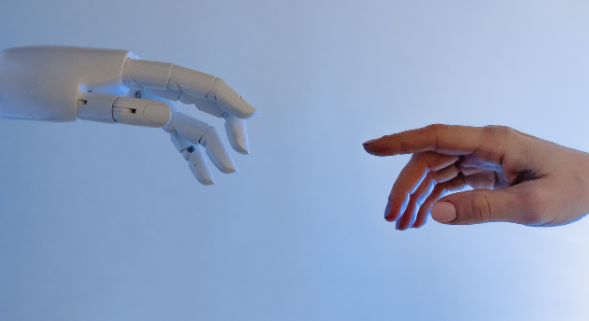Dubai’s AI policeman: a new era of urban monitoring
Dubai has always been at the forefront of embracing cutting-edge technology to enhance its urban landscape, and the latest addition to its innovative initiatives is no exception. The city has recently introduced an AI-powered robot policeman designed to monitor bicycle and electric scooter traffic violations with unmatched efficiency. This development is not just a testament to Dubai’s commitment to safety and order but also a glimpse into the future of law enforcement in urban spaces.
Embracing technology for safer streets
At the heart of this initiative is the integration of biometrics and facial recognition technology, marking a significant leap in how authorities enforce traffic rules. Unlike traditional methods, this robotic policeman is equipped with the capability to identify individuals using their United Arab Emirates biometric identity cards through facial recognition. This not only streamlines the process of linking violations directly to individuals but also significantly reduces the margin of error in identifying offenders.
The robot’s primary domain will be Dubai’s bustling public beach areas, where it will diligently monitor for infractions such as unauthorized parking or riding, overcrowding bicycles, and the misuse of cycle tracks. This deployment reflects Dubai’s broader strategy to leverage technology in creating safer, more regulated public spaces.
Trial phase: preliminary assessment
The introduction of this AI robot into Dubai’s law enforcement arsenal is currently in a trial phase, as reported by Gulf News. This period is crucial for evaluating the robot’s operational efficiency, particularly its facial recognition accuracy and error rates. The Roads and Transport Authority (RTA) has emphasized that the objective at this stage is not to penalize but to perfect the system. The robot is equipped with continuous monitoring cameras and AI-based analysis tools that allow it to detect and report violations automatically.
Moreover, the robot’s design includes motion sensors to ensure safe maneuverability around people and objects, showcasing Dubai’s commitment to integrating this technology seamlessly and safely into the urban environment.
Looking ahead: the future of urban law enforcement
As Dubai continues to test and refine this robotic policing system, the implications for the future of urban law enforcement are significant. The successful integration of AI and facial recognition technologies in maintaining public order could set a precedent for cities worldwide. The initiative underscores the potential for technology to not only enhance traditional policing methods but also to introduce new levels of efficiency and accuracy in law enforcement operations.
This innovative approach to urban safety and regulation reflects Dubai’s ongoing commitment to being a smart city leader. As the trial progresses, the RTA’s exploration of additional technologies for the robot’s second phase of testing hints at a future where technology and law enforcement converge to create safer, more regulated urban spaces. This pioneering project is just one more way Dubai is setting the standard for the cities of tomorrow.



